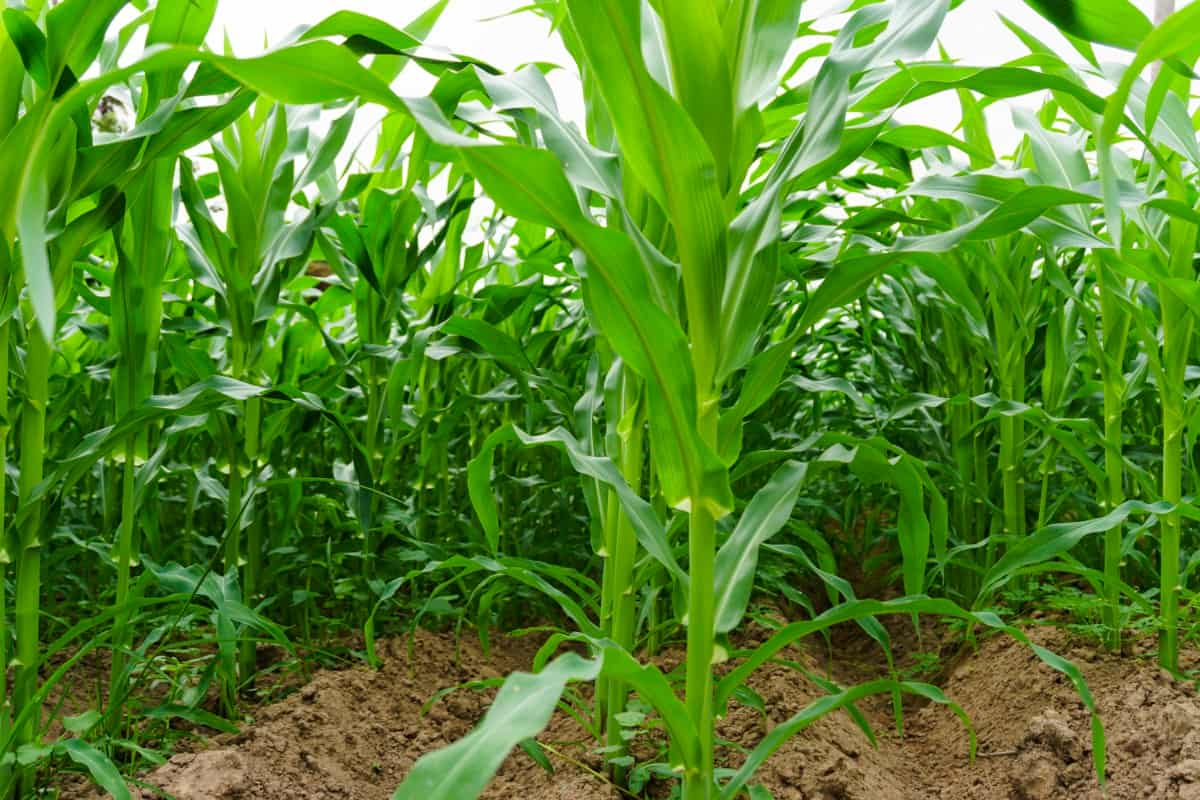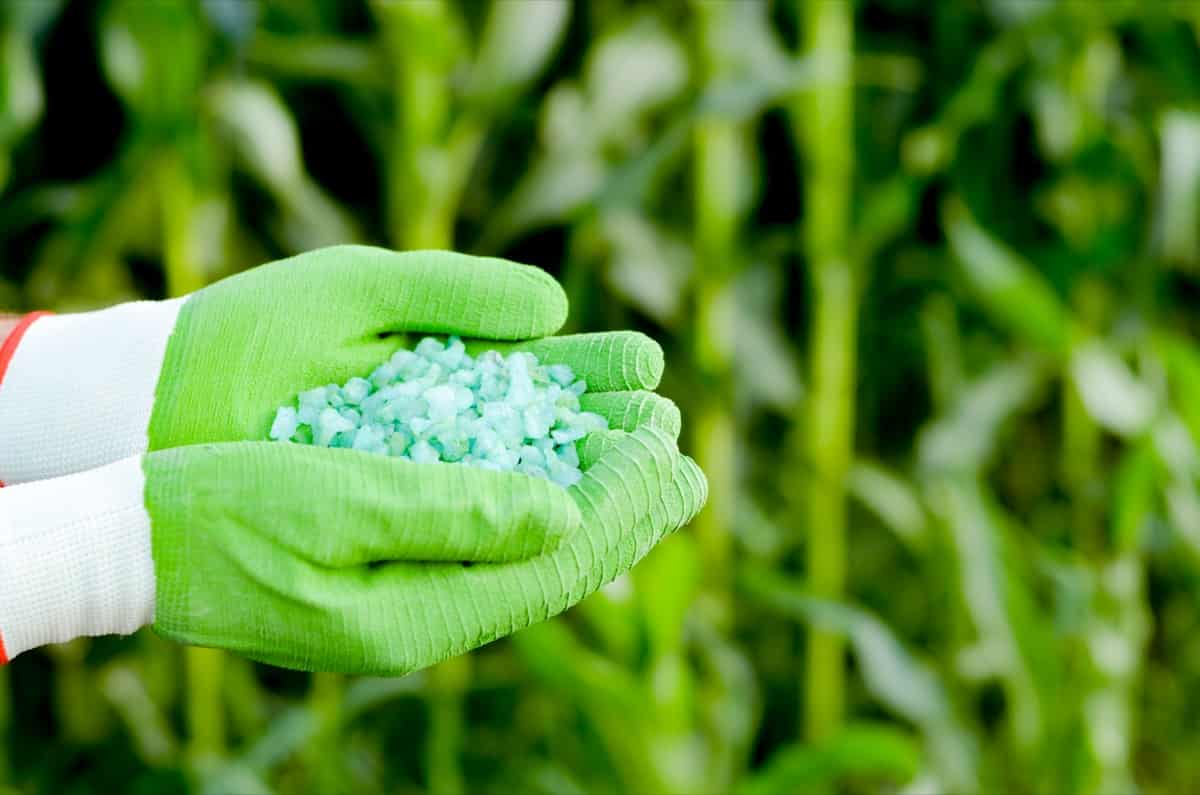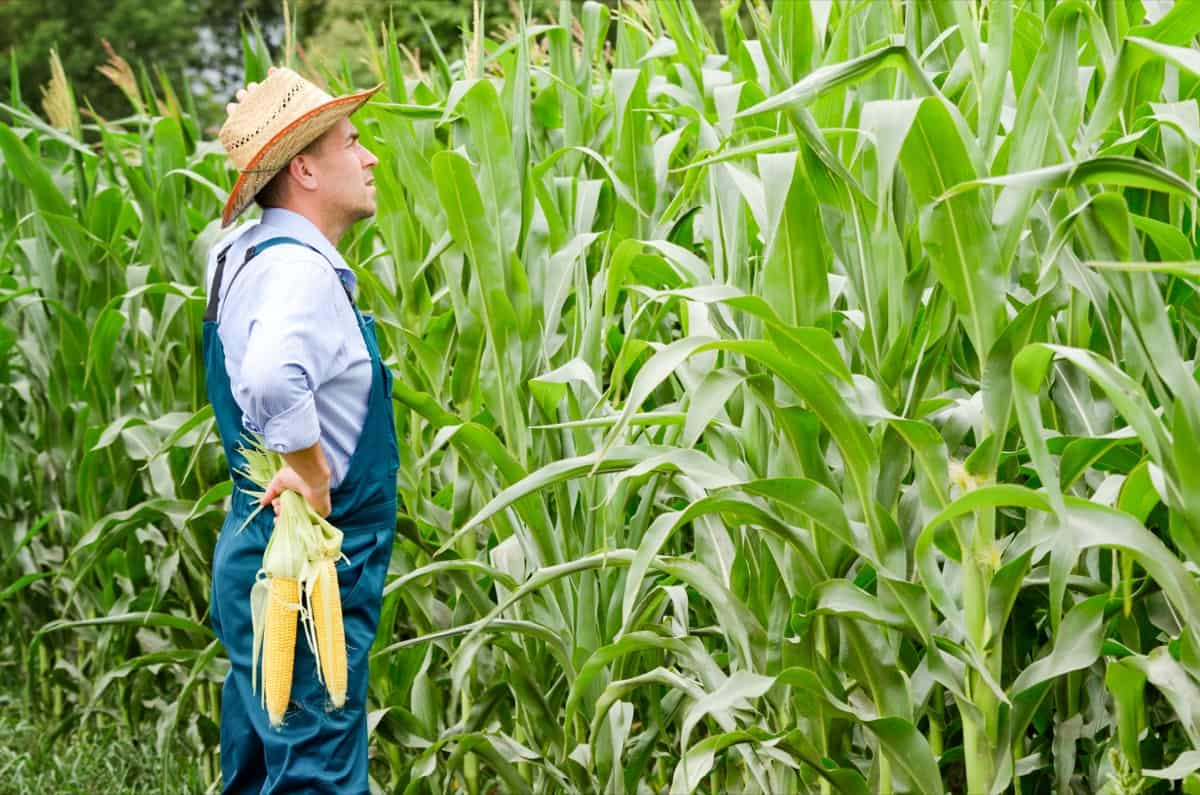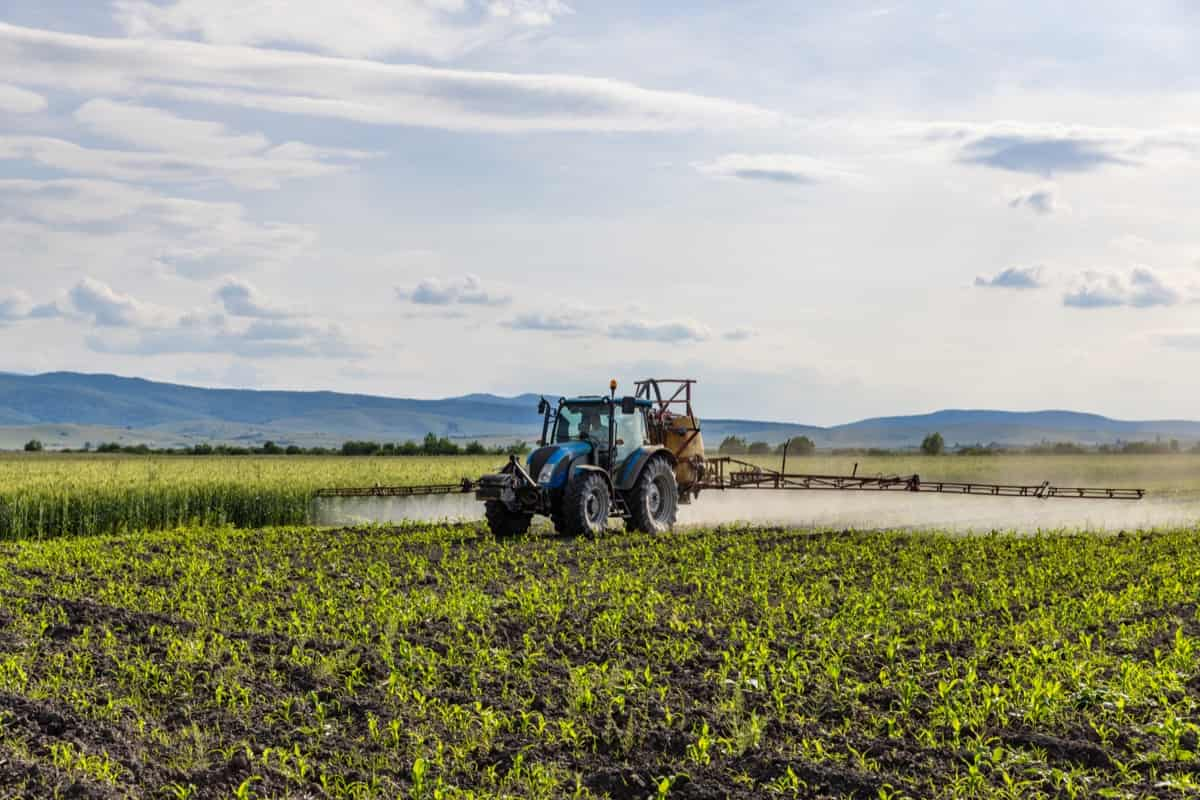Corn farming plays a vital role in feeding the world’s population, making it essential to understand how fertilizer management can significantly impact crop growth and yield. Corn farming is essential to our agricultural industry, providing food, feed, and fuel. To ensure optimal yields and healthy crops, it is crucial to understand the importance of fertilizer in Corn production.

Fertilizer Requirements and Recommendations for Corn
Best Fertilizer Management Practices for Corn
- To achieve the best results, optimal nutrient management is crucial to understand the nutrient requirements of Corn at different growth stages. Timing and application rates are key factors in ensuring that the crop receives the right nutrients when it needs them the most.
- Precision is essential when applying fertilizers to Corn fields. Proper equipment calibration and accurate placement methods ensure that nutrients are distributed evenly across the field, maximizing their plant uptake while minimizing wastage.
- Maintaining a proper balance between these three essential nutrients NPK is vital for optimal Corn growth and development. Each nutrient plays a unique role in supporting various plant functions, so understanding their interactions is crucial for fertilizer management.
- Regular soil testing provides valuable information about nutrient levels in the soil profile, allowing farmers to make informed decisions regarding fertilizer applications tailored to specific field conditions.
Optimal Nutrient Management for Corn Production
Corn plants have specific nutrient requirements such as nitrogen, phosphorus, and potassium. One key aspect of optimal nutrient management is soil testing and analysis. By regularly assessing the nutrient levels in the soil, farmers can determine which nutrients are deficient and adjust their fertilizer application accordingly.
Crop rotation is another beneficial strategy for optimizing nutrient management in Corn production. By rotating crops with different nutrient demands (such as legumes that fix nitrogen), farmers can improve soil fertility naturally and reduce reliance on synthetic fertilizers. Cover crops also play a significant role in maintaining soil health and enhancing nutrient availability for Corn plants.
Effective Fertilizer Application Techniques for Corn
It is important to consider the timing of fertilizer application. Splitting the application into multiple doses throughout the growing season allows for better nutrient availability during critical growth stages. This ensures that Corn plants receive a steady supply of nutrients when needed most. Applying fertilizers directly beneath or beside the seed helps to ensure that young Corn plants have access to essential nutrients right from germination. This targeted approach minimizes nutrient losses and uptake by reducing competition with weeds or other plants.
In case you missed it: From Cornish Cross to Red Ranger: Ranking the Best Broiler Chicken Breeds

Balancing Nitrogen, Phosphorus, and Potassium in Corn Fertilization
Nitrogen (N), phosphorus (P), and potassium (K) play critical roles in the growth and development of Corn plants. Nitrogen is crucial for promoting vigorous leafy growth and enhancing photosynthesis. It helps to increase stalk strength and overall plant health. Adequate phosphorus levels are necessary for root development, flowering, and fruiting. It also aids in energy transfer within the plant.
Potassium improves water use efficiency, disease resistance, and stress tolerance in Corn crops. It supports nutrient uptake by roots and enhances stalk integrity during windy conditions. To achieve a balanced fertilizer program, farmers should consider soil testing to determine existing nutrient levels accurately. Based on these results, appropriate amounts of nitrogen, phosphorus, and potassium can be applied as needed.
Precision Agriculture and Fertilizer Management for Corn
Precision agriculture techniques have revolutionized the way farmers approach fertilizer management for Corn crops. By utilizing advanced technologies such as GPS mapping, remote sensing, and variable rate application systems, farmers can now tailor their fertilizer applications to meet the specific needs of each area within a field.
Farmers can identify nutrient deficiencies or excesses with precision agriculture through soil testing and aerial imagery analysis. This allows them to decide where and how much fertilizer should be applied. Moreover, precision agriculture helps reduce environmental impacts by minimizing fertilizer waste and runoff into water bodies. It ensures that nutrients are only applied where needed, avoiding excessive use that could lead to pollution.
Farmers maximize yields and minimize costs and environmental risks associated with inefficient or excessive fertilization practices by embracing precision agriculture practices for Corn fertility management. This innovative approach offers great potential for sustainable farming while ensuring optimal crop nutrition for Corn production.
Sustainable Fertilizer Strategies for Corn Crops
One effective strategy is adopting precision agriculture techniques. By utilizing GPS technology and variable rate application systems, farmers can apply fertilizers more precisely, only where they are needed most. This reduces waste and ensures that nutrients are distributed evenly across the field.
Another sustainable approach is implementing nutrient management plans based on soil testing and nutrient analysis. By understanding the specific needs of our soils, we can optimize fertilizer applications and avoid over or under-application of nutrients. This helps prevent nutrient runoff into water bodies, preserving water quality.
Soil Testing and Nutrient Analysis for Corn Fertilization
Soil testing and nutrient analysis are crucial in optimizing Corn fertilization. Before applying any fertilizer to your Corn fields, it’s essential to understand the specific nutrient needs of your soil. This information can be obtained through comprehensive soil testing. By analyzing the nutrients in your soil, you can determine the exact amount and type of fertilizer required for optimal Corn growth.
In case you missed it: Frequently Asked Questions About Growing Baby Corn from Seed to Harvest

Soil tests measure levels of essential macronutrients like nitrogen (N), phosphorus (P), and potassium (K), as well as secondary nutrients such as calcium, magnesium, and sulfur. You can adjust your fertilizer application accordingly. For example, if your soil is deficient in nitrogen but has adequate levels of phosphorus and potassium, you may choose a nitrogen-rich fertilizer blend to address this deficiency effectively.
Additionally, soil testing allows for precise fertilization based on field variability. Regular soil testing also helps prevent over-fertilization, which can lead to environmental pollution from excess nutrients leaching into water bodies. It promotes sustainable agriculture practices by ensuring that only necessary amounts are applied while avoiding unnecessary costs associated with excessive fertilizer use.
Foliar Feeding as a Supplement to Corn Fertilizer Management
The foliar feeding technique involves applying liquid fertilizer directly to the leaves of the Corn plants, allowing for quick absorption and utilization by the crop. The main advantage of foliar feeding is its ability to provide nutrients during critical growth stages when the demand for nutrients is high. By bypassing soil uptake limitations, foliar feeding ensures that essential nutrients are readily available to support optimal growth and development.
In addition to providing key nutrients, foliar feeding can help address nutrient deficiencies more effectively. Farmers can quickly correct imbalances and prevent yield loss due to nutrient stress by targeting specific deficiencies through foliar applications. Furthermore, foliar feeding offers flexibility in timing application. It allows farmers to adjust their fertilization strategy based on weather conditions or other factors that may affect nutrient availability in the soil.
Cover Crops and Their Role in Corn Fertility Management
Cover crops play a crucial role in Corn fertility management, providing numerous benefits to the soil and the Corn crop. Farmers can help improve soil health and fertility by planting cover crops between growing seasons, reducing erosion, suppress weeds, conserving moisture, and enhancing nutrient cycling. Over time, the decomposition of cover crop residues adds valuable nutrients to the soil profile. This increases fertility and promotes better water infiltration and retention within the root zone.
Crop Rotation and Its Impact on Corn Fertilizer Requirements
Crop rotation is a widely recognized practice in agriculture, and it significantly impacts Corn fertilizer requirements. When farmers rotate crops, they alternate the type of plant grown in a particular field from one season to the next. This helps to break pest and disease cycles, improve soil health, and enhance nutrient availability for subsequent crops. In addition to addressing nutrient needs, crop rotation helps manage pests and diseases targeting Corn plants.
In case you missed it: How Cover Crops Improve Corn Harvest: Explained in Simple Steps

Farmers disrupt pest life cycles by alternating Corn with non-host crops such as soybeans or wheat, reducing the risk of infestations or outbreaks. Furthermore, rotating crops promotes soil health by preventing nutrient imbalances and reducing erosion rates. Different plants have varying root structures and depths, enhancing soil stability through improved water infiltration capacity.
Conclusion
Fertilizers play a vital role in supplying essential nutrients to Corn plants. By understanding the specific nutrient requirements of Corn, implementing effective fertilizer application techniques, and adopting innovative strategies like precision agriculture and cover cropping, farmers can optimize their Corn fertility management practices. Understanding the fertilizer requirements for Corn is crucial in maximizing productivity and profitability.
- Feed Your Flock for Less: Top 10 Tips to Save on Chicken Feed
- Ultimate Guide to Ossabaw Island Hog: Breeding, Raising, Diet, and Care
- Hatching Answers: The Top 10 Reasons Your Chickens Aren’t Laying Eggs
- Eggs and Economics: Breaking Down the Cost of Raising Backyard Chickens
- Defend Your Greens: Proven Methods to Keep Iguanas Out of Your Garden
- Ultimate Guide to Cinnamon Queen Chicken: A Comprehensive Guide for Beginners
- Ultimate Guide to California Tan Chicken: Breeding, Raising, Diet, Egg-Production and Care
- Ultimate Guide to Marsh Daisy Chicken: Breeding, Raising, Diet, and Care
- 10 Types of Chicken Farming Businesses You Can Start for Profits